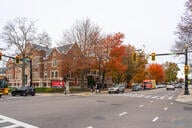You have /5 articles left.
Sign up for a free account or log in.
That the Internet is a game changer is well-known phenomenon. In fact, the word most usually associated with this phenomenon is "disruptive," and it is a good one because more times than not it is truly a neutral, descriptive term. Depending on what side of the fence you are on at the time of the disruption, you might think it either a good or bad thing. Think content industry: bad. Think people without money who want access to content: good. Of course, life, law and technology are infinitely more complicated than those Manichaeism terms, but you get the idea. Let's see how it applies to academic integrity.
But first let's be sure we have a foundational understanding of the concept. Academic Integrity is larger than plagiarism, but taking other people's work without attribution and with a notion that it is your own is the lion's share. How is it to be distinguished from copyright? Copyright is law; academic integrity is policy. You won't go to jail or pay a fine if you violate it, but within the community of scholars -- academic or public -- depending on a number of factors, you may lose your job or some degree of credibility. If you are a student, also depending on a number of factors, you may have to rewrite a paper, get a failing grade in the assignment, fail the course, or even be suspended or expelled from the institution. Copyright is not cured by attribution; in most cases, plagiarism is. Why is it important? Because it goes straight to the heart of academia: a community of scholars, stretched throughout all of human history, whose central dynamic is developing original work while standing on the shoulders of those who have come before us, irrespective of whether it was 10,000 years or 10 minutes ago. It is to newcomers, i.e. students, a special community with special rules, hence the difference between law and policy. It is an invitation to be part of the life of the mind, so long as you play by the rules.
Now, to be sure, the exact nature and shape of the rules can change given any number of factors, some obviously larger than others. Technology is a big one. Cutting and pasting having become so easy suddenly makes wholesale "copying" a facile process; how that function leads a tired, insecure or intentionally violative student down the road of perdition is a factor that educators must take into account no matter whether they like or don't like the fact of the technology that allows a student to do it. Here is why: because the best, well intentioned students are anxious that they make a mistake. That we do not want to cause our students undue anxiety. It is not warranted, if we pay attention to the world in which they live and help them clarify the rules to the practices, and nor is it wise for us to allow undue measure of anxiety to get in the way genuine learning. An overly cautious student may ultimately learn as little as the too liberal student when it comes to plagiarism. If learning is the name of the game, it behooves educators to get it right.
So much has been written about remix that I need not go into detail here about it (Lessig's books is good start, although more focused on law than academic integrity). Suffice it to say that remix now constitutes a very significant approach, trope and motif of contemporary culture that if we do not think hard about how we want academia to be of but not in this world, we will not serve either ourselves or our students. Technology has made it possible, yes, but technology in this instance once again demonstrates its transfigurative powers. That is, we see the academic dynamic -- something borrowed, something new -- more clearly than we might have seen it without technology. We should use that insight to bridge generations of learners and the tools and methods by which they learn.
For anyone who does not believe there is anything new under the sun worth talking about, allow me to share some personal experience. In creating a site on digital literacy, I spent some time talking to students about academic integrity. <http://digitalliteracy.
Finally, if anything should cause us to rethink pedagogy, academic integrity should. Not technology. Not MOOCs, but academic integrity. It is the foundation upon which we stand. If we cannot navigate being of but not in a free market society maintaining that which belongs to Cesare and that which belongs to higher education as a central driver of our integrity, then we will render ourselves irrelevant indeed. And it won't it "technology" or MOOCs that do it, it will be the failure of all of us at the barricades, in the halls and groves of academe.


